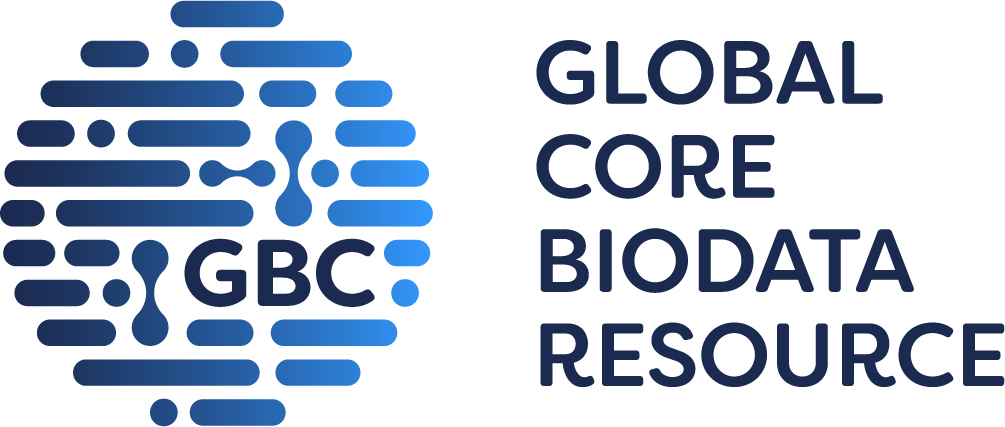
L-798,106 [Ligand Id: 1941] activity data from GtoPdb and ChEMBL
Click here for a description of the charts and data table
Please tell us if you are using this feature and what you think!
| ChEMBL ligand: CHEMBL218071 |
|---|
|
There should be some charts here, you may need to enable JavaScript!
|
There should be some charts here, you may need to enable JavaScript!
|
There should be some charts here, you may need to enable JavaScript!
|
There should be some charts here, you may need to enable JavaScript!
|
There should be some charts here, you may need to enable JavaScript!
|
There should be some charts here, you may need to enable JavaScript!
|
There should be some charts here, you may need to enable JavaScript!
|
There should be some charts here, you may need to enable JavaScript!
|
There should be some charts here, you may need to enable JavaScript!
|
| DB | Assay description | Assay Type | Standard value | Standard parameter | Original value | Original units | Original parameter | Reference |
|---|---|---|---|---|---|---|---|---|
| D3 receptor/D(3) dopamine receptor in Human (target type: SINGLE PROTEIN) [ChEMBL: CHEMBL234] [GtoPdb: 216] [UniProtKB: P35462] | ||||||||
| ChEMBL | PDSP Secondary Binding target: DRD3 - Compounds are tested at 10 uM concentration, plate are incubated at room temperature in the dark for 90 minutes. Reaction are stopped by vacuum filtration onto 0.3% polyethyleneimine soaked filter mats using Filtermate harvester. Scintillation cocktail is then melted onto microwave-dried filters on a hot plate and the radio activity is counted in Microbia counter. Compounds showing a minimum of 50% inhibition at 10 uM concentration are carried forward in this secondary binding assay to determine equilibrium binding affinity. | B | 6.23 | pKi | 582.44 | nM | Ki | EUbOPEN Chemogenomics Library - PDSP Secondary Binding |
| IP receptor/Prostacyclin receptor in Human (target type: SINGLE PROTEIN) [ChEMBL: CHEMBL1995] [GtoPdb: 345] [UniProtKB: P43119] | ||||||||
| ChEMBL | Binding affinity to IP receptor | B | 6.3 | pKi | >500 | nM | Ki | Bioorg Med Chem Lett (2006) 16: 5639-5642 [PMID:16931013] |
| DP1 receptor/Prostaglandin D2 receptor in Human (target type: SINGLE PROTEIN) [ChEMBL: CHEMBL4427] [GtoPdb: 338] [UniProtKB: Q13258] | ||||||||
| ChEMBL | Binding affinity to DP receptor | B | 6.3 | pKi | >500 | nM | Ki | Bioorg Med Chem Lett (2006) 16: 5639-5642 [PMID:16931013] |
| EP1 receptor/Prostaglandin E2 receptor EP1 subtype in Human (target type: SINGLE PROTEIN) [ChEMBL: CHEMBL1811] [GtoPdb: 340] [UniProtKB: P34995] | ||||||||
| ChEMBL | Binding affinity to EP1 receptor | B | 4.41 | pKi | 39000 | nM | Ki | Bioorg Med Chem Lett (2006) 16: 5639-5642 [PMID:16931013] |
| EP2 receptor/Prostaglandin E2 receptor EP2 subtype in Human (target type: SINGLE PROTEIN) [ChEMBL: CHEMBL1881] [GtoPdb: 341] [UniProtKB: P43116] | ||||||||
| ChEMBL | Binding affinity to EP2 receptor | B | 4.3 | pKi | >50000 | nM | Ki | Bioorg Med Chem Lett (2006) 16: 5639-5642 [PMID:16931013] |
| EP3 receptor/Prostaglandin E2 receptor EP3 subtype in Human (target type: SINGLE PROTEIN) [ChEMBL: CHEMBL3710] [GtoPdb: 342] [UniProtKB: P43115] | ||||||||
| ChEMBL | Binding affinity to EP3 receptor in presence of HSA | B | 8.16 | pKi | 6.9 | nM | Ki | Bioorg Med Chem Lett (2006) 16: 5639-5642 [PMID:16931013] |
| ChEMBL | Binding affinity to EP3 receptor | B | 9.22 | pKi | 0.6 | nM | Ki | Bioorg Med Chem Lett (2006) 16: 5639-5642 [PMID:16931013] |
| GtoPdb | - | - | 9.68 | pKi | 0.21 | nM | Ki |
Bioorg Med Chem (2001) 9: 1977-84 [PMID:11504634]; Am J Physiol Renal Physiol (2008) 295: F984-94 [PMID:18632791]; Br J Pharmacol (2009) 158: 372-81 [PMID:19486006] |
| ChEMBL | Antagonist activity at EP3 receptor (unknown origin) | B | 7.48 | pIC50 | 33.02 | nM | IC50 | ACS Med Chem Lett (2023) 14: 727-736 [PMID:37312837] |
| EP4 receptor/Prostaglandin E2 receptor EP4 subtype in Human (target type: SINGLE PROTEIN) [ChEMBL: CHEMBL1836] [GtoPdb: 343] [UniProtKB: P35408] | ||||||||
| ChEMBL | Binding affinity to EP4 receptor | B | 6.05 | pKi | 890 | nM | Ki | Bioorg Med Chem Lett (2006) 16: 5639-5642 [PMID:16931013] |
| FP receptor/Prostaglandin F2-alpha receptor in Human (target type: SINGLE PROTEIN) [ChEMBL: CHEMBL1987] [GtoPdb: 344] [UniProtKB: P43088] | ||||||||
| ChEMBL | Binding affinity to FP receptor | B | 6.3 | pKi | >500 | nM | Ki | Bioorg Med Chem Lett (2006) 16: 5639-5642 [PMID:16931013] |
| TP receptor/Thromboxane A2 receptor in Human (target type: SINGLE PROTEIN) [ChEMBL: CHEMBL2069] [GtoPdb: 346] [UniProtKB: P21731] | ||||||||
| ChEMBL | Binding affinity to TP receptor | B | 6.3 | pKi | >500 | nM | Ki | Bioorg Med Chem Lett (2006) 16: 5639-5642 [PMID:16931013] |
ChEMBL data shown on this page come from version 36:
Zdrazil B, Felix E, Hunter F, Manners EJ, Blackshaw J, Corbett S, de Veij M, Ioannidis H, Lopez DM, Mosquera JF, Magarinos MP, Bosc N, Arcila R, Kizilören T, Gaulton A, Bento AP, Adasme MF, Monecke P, Landrum GA, Leach AR. (2024). The ChEMBL Database in 2023: a drug discovery platform spanning multiple bioactivity data types and time periods. Nucleic Acids Res., 52(D1). DOI: 10.1093/nar/gkad1004. [EPMCID:10767899] [PMID:37933841]
Davies M, Nowotka M, Papadatos G, Dedman N, Gaulton A, Atkinson F, Bellis L, Overington JP. (2015) 'ChEMBL web services: streamlining access to drug discovery data and utilities.' Nucleic Acids Res., 43(W1). DOI: 10.1093/nar/gkv352. [EPMCID:25883136]







